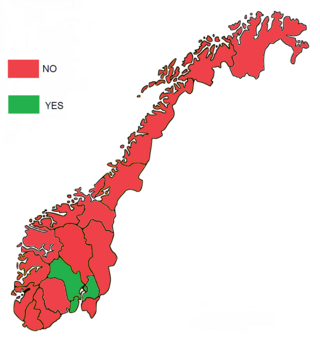Related Research Articles

The Norwegian Confederation of Trade Unions is a national trade union center, decidedly the largest and probably the most influential umbrella organization of labour unions in Norway. The 21 national unions affiliated to the LO have almost 1,000,000 members of a Norwegian population of 5 million. The majority of affiliated unions organizes traditional blue collar workers, but the largest affiliate is the Norwegian Union of Municipal and General Employees which makes up more than a third of all members. LO is affiliated to the ITUC and the ETUC.

The Swedish Trade Union Confederation, commonly referred to as LO, is a national trade union centre, an umbrella organisation for fourteen Swedish trade unions that organise mainly "blue-collar" workers. The Confederation, which gathers around 1.5 million employees out of Sweden's 10 million people population, was founded in 1898 by blue-collar unions on the initiative of the 1897 Scandinavian Labour Congress and the Swedish Social Democratic Party, which almost exclusively was made up by trade unions. In 2019 union density of Swedish blue-collar workers was 60%, a decline by seventeen percentage points since 2006 when blue-collar union density was 77%. A strong contributing factor was the considerably raised fees to union unemployment funds in January 2007 made by the new centre-right government.

A referendum on joining the European Community was held in Norway on 25 September 1972. After a long period of heated debate, the "no" side won with 53.5% of the vote. Prime Minister Trygve Bratteli, who had championed a "yes" vote, resigned as a result. This was Norway's second attempt at becoming a member, after having been vetoed by France in January 1963 and again temporarily in 1967, but the first attempt with a referendum on a set of fully negotiated accession terms.
The Electrician and IT Workers' Union is a trade union in Norway.

The Norwegian Union of Food, Beverage and Allied Workers is a trade union in Norway.
The Norwegian Post and Communications Union was a trade union representing workers in the postal and telecommunication sectors in Norway.

Jan Tore Sanner is a Norwegian politician for the Conservative Party who has held several ministerial positions in Erna Solberg's government between 2013 and 2021. He was also the party's deputy leader from 2004 to 2022, having first been second deputy for the first four years and first deputy for the last fourteen. Sanner has also been a member of parliament for Akershus since 1993.

The Norwegian Seafarers' Union, NSU, is a trade union representing sailors in Norway.

The Norwegian Union of Iron and Metalworkers was a trade union representing workers in the metal industry, workshops, and shipbuilding in Norway.

The Norwegian Union of Paper Industry Workers was a trade union representing workers involved in manufacturing paper in Norway.

The Norwegian Union of Forestry and Land Workers was a trade union in Norway, organized under the national Norwegian Confederation of Trade Unions.
Ørnulf Egge was a Norwegian politician for the Workers' Youth League and Communist Party and resistance member during World War II.

Industri Energi is a Norwegian trade union for employees in the petroleum industry, the chemical industry, the pharmaceutical industry, the aluminium and metal industry and the forest industry.
The Norwegian Union of Hide and Leather Workers was a trade union representing workers in the leather industry in Norway.
The Norwegian Union of Bookbinders and Cardboard Workers was a trade union representing workers involved in bookbinding and manufacturing packaging in Norway.
The Norwegian Lithographic and Chemographic Union (Norwegian: Norsk Litograf- og Kjemigrafforbund was a trade union representing printers in Norway.
The Norwegian Bakery and Confectionery Workers' Union was a trade union representing workers in the baking trade in Norway.

The Norwegian Union of Electricians and Power Station Officials was a trade union representing workers in jobs relating to electricity, in Norway.

The Norwegian Union of Telecommunication Workers was a trade union representing fitters and delivery workers at Televerket.

The Norwegian Telecommunication Organisation was a trade union representing technical staff at Televerket.
References
- ↑ "Vil samle databransjen i nytt forbund". digi.no. Retrieved 18 November 2020.
- ↑ Directory of Labor Organizations: Europe. Vol. 2. Washington DC: United States Department of Labor. 1965. p. 21.1–21.18.
- ↑ Viggen, Knut (6 July 2018). "100 år med kamp, konflikt og samarbeid". Frifagbevegelse. Retrieved 16 November 2020.